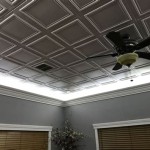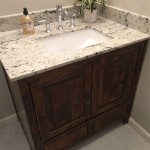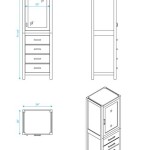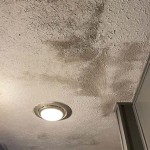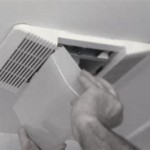Why Do I Suddenly Have Ants In My Bathroom?
The sudden appearance of ants in a bathroom can be a perplexing and frustrating experience for homeowners. While ants are common household pests, their unexpected presence in a normally clean and sterile environment like a bathroom raises several questions. Understanding the factors that attract ants to bathrooms, identifying their entry points, and implementing effective control measures are crucial to resolving this issue and preventing future infestations.
Moisture: A Primary Ant Attractant
One of the most significant attractants for ants in a bathroom is moisture. Ants, like all living organisms, require water to survive. Bathrooms, by their very nature, tend to be humid environments, often providing a readily available water source for these insects. Leaky pipes, dripping faucets, condensation around toilets and showers, and even damp towels can create an attractive habitat for ants.
The presence of moisture not only provides a direct water source but also encourages the growth of mold and mildew, which can serve as an additional food source for certain ant species. Carpenter ants, for example, are attracted to damp wood, which is often found in bathrooms due to leaks or poor ventilation. Pharaoh ants are also drawn to areas with high humidity.
Addressing moisture issues is, therefore, a critical first step in eliminating an ant infestation in the bathroom. This includes repairing any leaks promptly, ensuring proper ventilation to reduce humidity, and regularly cleaning up spills and condensation.
Food Sources: More Than Meets the Eye
While bathrooms might seem devoid of food sources for ants, they can, surprisingly, offer several options. The most obvious source might be sugary residues from spilled toothpaste, soap remnants, or even hair products. These seemingly insignificant spills can provide a sufficient food source for small ant colonies.
Beyond the immediately visible, other less obvious food sources can attract ants. Drain pipes, for instance, can accumulate organic matter from hair, soap scum, and other debris, providing a rich feeding ground for ants that are able to access them. Additionally, dead insects, such as small flies or silverfish that might be present in the bathroom, can serve as a food source.
Furthermore, ants may be foraging into the bathroom from other areas of the house where food is more readily available. These worker ants can be drawn into the bathroom by faint food odors or by following trails left by previously successful foragers. Ensuring that food is properly stored and crumbs are cleaned up throughout the house can help to reduce the attractiveness of the bathroom to ants.
Entry Points: How Ants Access the Bathroom
Once ants are attracted to a bathroom, they need a way to enter. Common entry points include cracks in walls or floors, gaps around pipes and fixtures, spaces around windows and doors, and even through the plumbing system itself. Ants are remarkably adept at finding and exploiting even the smallest openings. These entry points often lead to hidden nests within the walls, under the floor, or even behind appliances.
The plumbing system can be a major avenue for ant entry. Ants can travel through drainpipes, accessing the bathroom from other areas of the house or even from outside. Similarly, cracks in grout or sealant around the bathtub, shower, or toilet can provide easy access for ants.
Inspecting the bathroom carefully to identify potential entry points is crucial for effective ant control. Sealing cracks and crevices with caulk or sealant can prevent ants from entering the bathroom and accessing food and water sources. Repairing damaged grout and ensuring that pipes are properly sealed can also help to eliminate entry points.
Specific ant species may have preferences for entry points. For example, pavement ants often enter through cracks in the foundation and walls, while carpenter ants may create their own entry points by excavating wood. Identifying the species of ant present can help to pinpoint their preferred entry points and implement targeted control measures.
Effective ant control in the bathroom involves a multi-pronged approach that addresses the underlying factors attracting ants, eliminates their access to food and water, and prevents them from entering the bathroom in the first place. Several strategies can be employed, ranging from simple preventative measures to more aggressive treatment options.
The first step is to eliminate any existing ant trails. These trails, which are invisible to the naked eye, are scent trails left by worker ants to guide other ants to food and water sources. Cleaning the bathroom thoroughly with a disinfectant or a solution of vinegar and water can disrupt these trails and discourage ants from returning.
Next, address any moisture issues. Repair leaky pipes or faucets, improve ventilation to reduce humidity, and ensure that damp towels are hung up to dry. Consider using a dehumidifier in the bathroom, especially during humid months, to reduce the overall moisture level.
Eliminate potential food sources by cleaning up spills immediately, storing toothpaste and other toiletries in sealed containers, and regularly cleaning drains to remove organic matter. Emptying garbage cans frequently and ensuring that they are properly sealed can also help to reduce the attractiveness of the bathroom to ants.
Seal any cracks or crevices in walls, floors, or around pipes and fixtures. Use caulk or sealant to close off potential entry points and prevent ants from entering the bathroom. Repair damaged grout and ensure that pipes are properly sealed to eliminate potential access routes.
If preventative measures are not sufficient to eliminate the ant infestation, consider using ant baits. Ant baits contain a slow-acting poison that worker ants carry back to the colony, eventually killing the entire colony. Place ant baits in areas where ants are frequently seen, such as near water sources or along ant trails. Read and follow the instructions on the bait packaging carefully.
Different types of ant baits are available, each targeting specific ant species. Sugar-based baits are effective for ants that prefer sweet food sources, while protein-based baits are better suited for ants that prefer protein. Identifying the species of ant present can help to choose the most effective bait.
Avoid using sprays or insecticides in the bathroom, as these can be harmful to humans and pets. Sprays may also repel ants, causing them to relocate to other areas of the house. If you choose to use sprays, use them sparingly and follow the instructions on the label carefully.
In some cases, professional pest control services may be necessary to eliminate severe ant infestations. Pest control professionals have the expertise and equipment to identify the source of the infestation, locate and treat ant nests, and implement preventative measures to prevent future infestations.
Effective ant control requires patience and persistence. It may take several weeks to eliminate an ant infestation completely. Continue to monitor the bathroom for signs of ants and repeat treatment as necessary.
Maintaining a clean and dry bathroom is the best way to prevent future ant infestations. Regularly clean up spills, repair leaks promptly, and ensure proper ventilation. By taking these preventative measures, you can create an environment that is less attractive to ants and prevent them from returning to your bathroom.
The sudden appearance of ants in a bathroom is a sign that something is attracting them. By understanding the factors that attract ants, identifying their entry points, and implementing effective control measures, it is possible to eliminate these pests and prevent them from returning. A proactive approach to bathroom hygiene and maintenance is essential for maintaining a pest-free environment.

Why Do I Have Ants In My Bathroom

Boise Idaho Pest Control Pestcom

Why Do I Suddenly Have Ants In My House Loyal Termite Pest Control Extermination Services

Boise Idaho Pest Control Pestcom

Why Do I Suddenly Have Ants In My House Critters Pest Management Pty Ltd

Why Do I Suddenly Have Ants In My House Loyal Termite Pest Control Extermination Services

How To Stop Ants From Invading Your Bathroom Identification And Prevention Tips Tabor Pest Control

5 Reasons You Keep Having Ant Problems In Your Home

How To Get Rid Of Little Black Ants In Your Bathroom Housekeeping Wonderhowto

Here S Why Ants Are In Your Room Even If There No Food Pest Pointers
Related Posts

